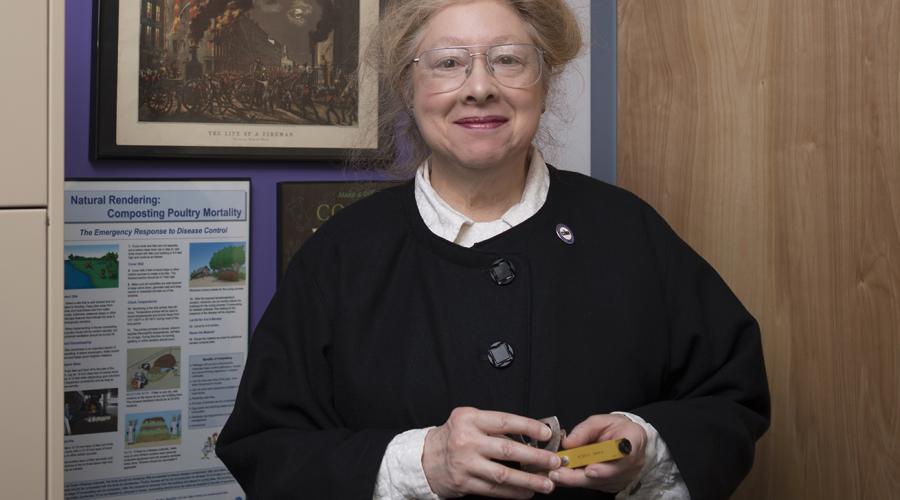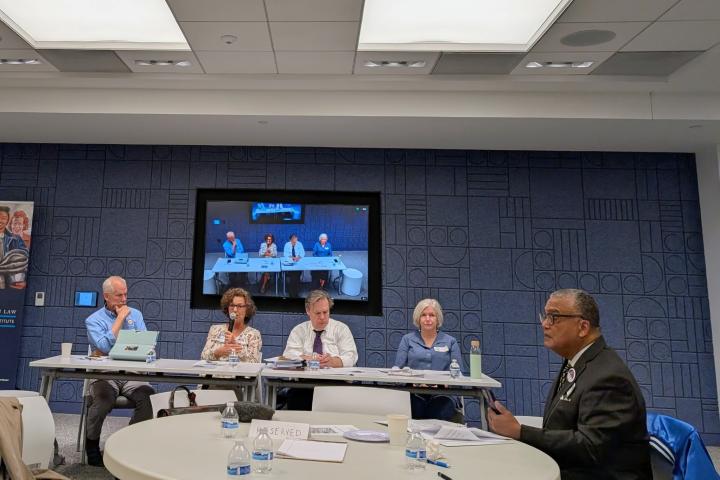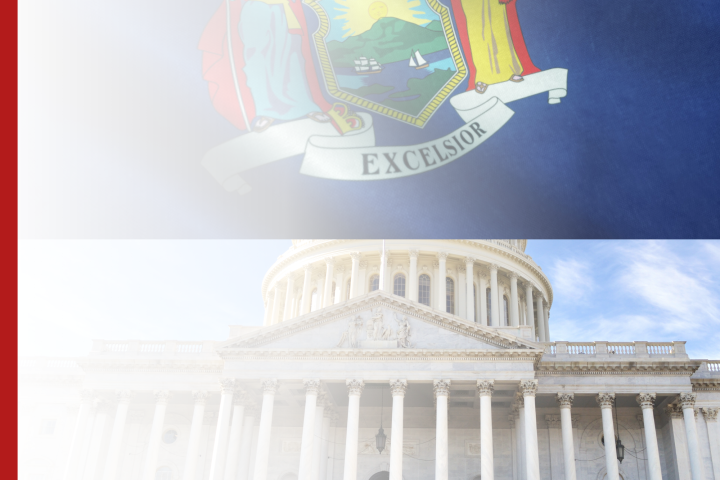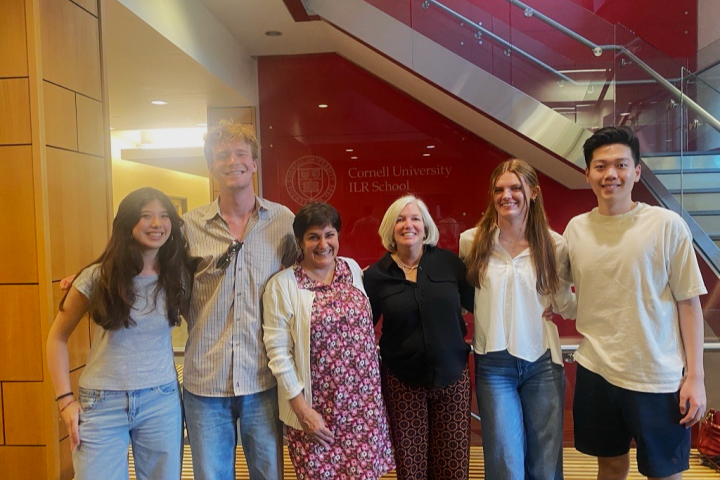
ILR Program Celebrating 35 Years
An estimated 75,000 New York state residents have learned how to improve health and safety in their workplaces through an ILR program celebrating its 35th anniversary this year.
Nellie Brown, a certified industrial hygienist, typically teaches 2,000 to 3,000 people a year on everything from school air quality and computer workstation ergonomics to bloodborne pathogen protocols and safe laboratory practices.
In 2020, the number of people reached annually through ILR’s Workplace Health & Safety Program soared to over 7,000 due to COVID-19.
From her geodesic home in suburban Buffalo, Brown has been busier than ever. In one particularly packed day during the height of the pandemic in the U.S., she was in back-to-back Zoom meetings leading workshops on cosmetology safety and COVID-19 safety, and answering questions in interviews with the BBC Brazil, Newsday, Family Life News and Healthday.
Brown joined the health and safety program a few months after it was founded by Susan Woods and Michelle Kaplan of the ILR School and Dr. James Platner, a toxicologist. It was known as the Chemical Hazard Information Program until 1998, when Platner left and Brown became director. “A name change was called for as the program had been diversified beyond chemical hazards for many years,” Brown said.
Looking back on five decades of training sessions with people across the state, Brown said high points include the program’s success with helping reduce childhood lead poisoning in Monroe County, and improving working conditions in industrial, office and school settings, and developing a breast carcinogen database, and the training and technical assistance to accompany it.
Brown also reaches global audiences; her publications have been downloaded more than 283,400 times. Titles range from “Conducting a Safety Walk-Through on a Farm: Hazards of the Manure Handling System, Anaerobic Digester, and Biogas Handling System” to “Accommodating the Allergic Employee in the Workplace” to “Risks and Risk Reduction for Shift Work, Long Hours of Work, and Sleep Deprivation.”
The program, now based in ILR’s Buffalo Co-Lab, is part of the school’s Outreach division, and offers programs across many areas including chemicals, biological agents such as COVID-19, ergonomics, occupational stress, shift-work and long hours of work, crisis and violence prevention, hazard analysis techniques, and indoor air quality for employers, labor unions and the public.
Brown also teaches a virtual credit course on occupational safety and health.
Across Cornell, Brown has collaborated with groups such as the Department of Biological and Environmental Engineering, Cornell Dairy Environmental Systems, Cornell Waste Management Institute and the Sprecher Institute for Comparative Cancer Research.
Some of what Brown studies, is “nasty stuff,” but she asks herself how she can make a difference. Always, she said, the work is fascinating.
Changes Brown has seen over the years include wider public awareness of environmental threats, such as endocrine-disrupting chemicals, and health and safety as a collective bargaining tool.
Some of the most meaningful moments for Brown, who has also worked as a biologist and chemist, include solving workplace problems such as averting carbon monoxide poisoning in an Amherst, New York, factory, investigating complaints by assembly line workers about eye, ear and throat irritation, and helping schools remediate air problems.
Brown is a go-to resource for national and regional news media. Some of the stories citing her expertise include “Businesses are reopening. If you're older or sick, what happens to your job?” in the “Los Angeles Times” and “NY, lifeguards wrangle over safety issues as beaches prepare to open” in “Newsday.” She was also featured on “Don Lemon Tonight.”
There have been many unexpected issues to which the program has contributed expertise. They include bedbug infestation, HIV/AIDS and cytomegalovirus, which can cause birth defects, and cannabis. “I would never have envisioned that I would be doing programs on cannabis in the workplace.”
During the pandemic, businesses in many industries turned to Brown for guidance on adjusting practices and policies. Restaurant Opportunities Centers United was one of them. Brown gave 52 people from the national nonprofit a four-hour training that included polling workers on everything from how knowledgeable they feel they are about COVID-19, to whether they would get vaccinated, to if they had been threatened or assaulted for reminding customers to wear their masks. Brown is now helping the organization create COVID-related policies.
In her webinars on the COVID-19 pandemic, Brown said she has been particularly heartened to receive feedback from some of the younger participants who decided to get the vaccine after listening to her speak.
“I think as a society that we just don't educate well enough on science issues,” Brown said. “I'm a scientist, but my job is translational. I'm supposed to be making technical information accessible.”
“The issues are always interesting and the problems are challenging to me as a scientist.
What’s make this work so very satisfying is that you feel like you’ve accomplished things, made a difference, found ways for people to continue in a job they love. So many people have been taken advantage of, deliberately or through ignorance, and paid a high price for it through disease, injury or death.”
“Labor or management, people know I’m going to be honest with them. I tell them, ‘I’m going to tell you what I see, no matter that you may or may not like what I have to say.’”



